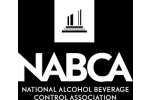The 2023 Louisiana Oral Fluid Pilot Study represents a pivotal advance in the methods of detecting
and prosecuting drug-impaired driving (DUID). This study was designed to evaluate the efficacy of
oral fluid testing as an alternative to traditional blood and urine tests in supporting DUID cases
across Louisiana. The initiative aimed to integrate oral fluid testing within law enforcement
workflows, examining its impact on the timeliness and effectiveness of substance detection
following driving incidents.
Results from the pilot study underscore the potential of oral triage as a critical tool in roadside
testing. The study confirmed that oral fluid testing could detect a wide range of psychoactive
substances with a high degree of accuracy comparable to blood tests but offered the added
benefits of non-invasiveness and quicker results. Significantly, the findings highlight a high
incidence of poly-drug use, revealing that oral fluid testing is not only feasible but also crucial in
capturing the complexities of substance influence beyond alcohol.
The implications of these findings are profound. They suggest a need for policy shifts to adopt oral
fluid testing widely across the state, which could lead to more efficient law enforcement and safer
roadways. This presentation will delve into the methodology, results, and policy recommendations
of the pilot study, aiming to foster a broader understanding and discussion about the future of DUID
enforcement.
Session Objectives:
1. Examine the Effectiveness of Oral Fluid Testing: Analyze the efficacy of oral fluid testing in
detecting drug-impaired driving compared to traditional methods such as blood and urine
testing. Discuss how oral fluid integrates into existing law enforcement procedures and its
impact on the speed and accuracy of substance detection.
2. Highlight the Prevalence of Poly-Drug Use: Present findings from the 2023 Louisiana Oral
Fluid Pilot Study that demonstrate the incidence of poly-drug use among drivers. Explore
the implications of these findings for law enforcement and policy-making, emphasizing the
enhanced detection capabilities of oral fluid testing.
3. Discuss Policy Implications and Recommendations: Review the policy shifts suggested by
the study results, advocating for the widespread adoption of oral fluid testing across
Louisiana. Explore how these changes could improve law enforcement efficiency and
enhance road safety, and propose steps for implementation that could serve as a blueprint
for other regions.








